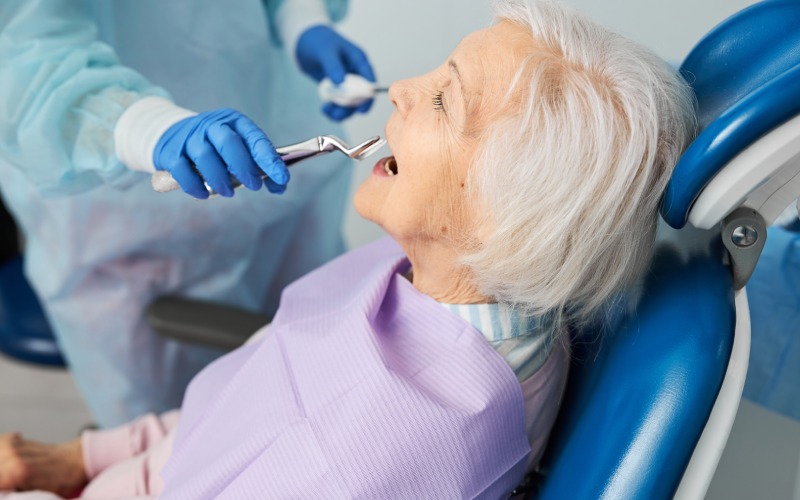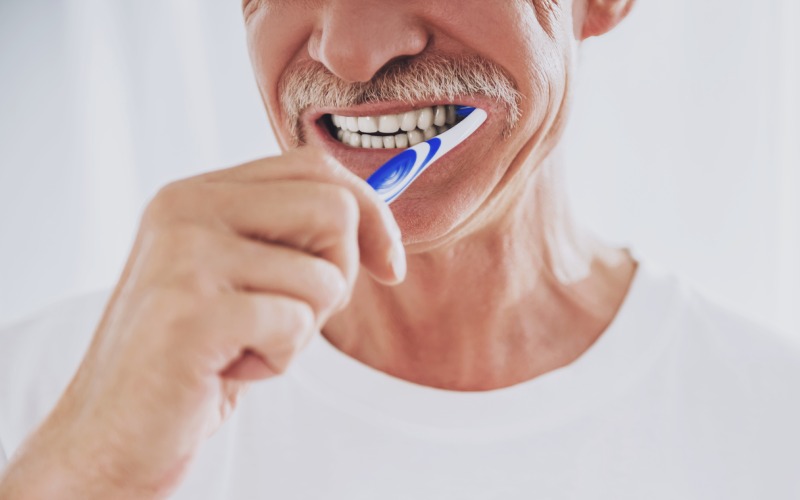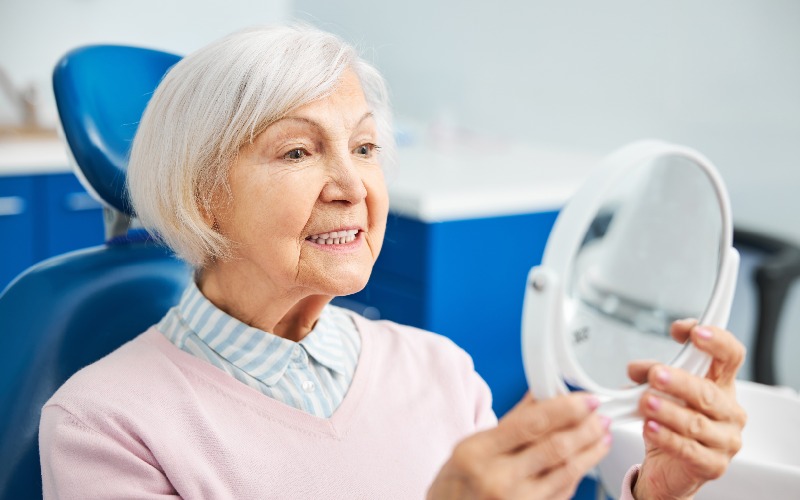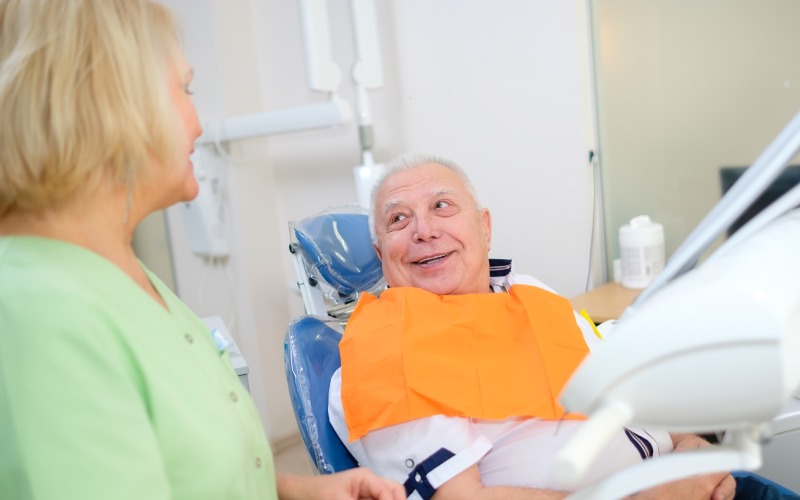Have you ever wondered why your grandparents seem to have an endless array of dental woes? Or why are they always scheduling another dentist appointment? It’s not just about age. Welcome to the world of geriatric dental concerns, an often overlooked but crucial aspect of elder care.
Taking care of elderly teeth isn’t as simple as it seems. It’s a complex, delicate process that requires a deep understanding of the unique dental issues they face. From tooth decay to gum diseases, the elderly are susceptible to a variety of dental problems that can significantly impact their quality of life.
Table of Contents
ToggleUnderstanding Geriatric Dental Concerns
Special attention should be given to elder dental care, often referred to as Geriatric Dentistry. Unlike other branches of dentistry, it’s subjected to challenges presented by aging physical dexterity, cognitive abilities, and medical conditions. As it turns out, these factors can make dental treatment for older people a meticulous task.
Common Oral Health Issues in the Elderly
As time takes its toll on physical agility, some elderly people may find it difficult to keep up with their regular brushing and flossing routine. Not only that, certain medications and health considerations can also have an ill effect on their oral health. Noticeably, seniors need to be under the radar for myriad oral health problems that they are prone to.
Studies done in the past emphasize the uniqueness of each elder’s oral health condition. Dentists often find themselves tailoring their treatment techniques to cater to each elderly patient’s specific requirements. Meanwhile, inherent physical disorders throw additional challenges into the mix, impeding an elder’s ability to maintain oral hygiene. It’s pertinent to address these common yet important concerns to ensure a comprehensive understanding of geriatric dental issues.
Impact of Aging on Oral Health
As one grows older, maintaining oral health becomes increasingly critical, yet equally challenging. Studies from across the globe indicate an improvement in oral health, but with a catch. While a significant portion of the elderly population (approx 60%) retains 20 or more of their teeth into their elderly years, good oral health is more common among healthy older people. But, for frail individuals in need of more care, the condition often deteriorates.
Frail individuals, as they grapple with self-care limitations and frequent dental health care visit difficulties, become more susceptible to poor oral health. This reduced capacity for self-care often stems from mental and physical disabilities and chronic disease complications. Hence, daily oral hygiene practices, especially tooth brushing to remove dental plaque, become crucial to mitigating the risk of dental diseases. The key lies in understanding the unique conditions and challenges of aging to provide the best oral health care to our elderly and reinforce their holistic health and wellbeing.

The Connection Between Oral and General Health in Seniors
With advancing age, it’s normal to experience general health changes. Numerous studies link senior health issues, such as cardiovascular disease and diabetes, with oral health problems. Also, specific habits and treatments that seniors adopt can affect their dental health, impacting their overall well-being. Understanding these associations helps in implementing effective preventive measures.
The Role of Medications in Oral Health
Medications play a vital part in managing health conditions in seniors, but they can also have side effects on oral health. Particularly, meds for health conditions such as hypertension and depression can result in dry mouth.
Dry mouth – medically referred to as ‘xerostomia’ – isn’t just uncomfortable; it can lead to serious dental issues. Saliva acts as a natural defense against tooth decay by limiting the growth of bacteria and washing away food particles. It also aids in preventing oral infections, such as yeast infections. A decrease in saliva production interferes with these functions, elevating the risk of cavities and gum disease.
Dietary Habits Affecting Dental Health
Often, seniors resort to consuming acidic food and drinks to stimulate salivary flow. Such habits can lead to severe tooth surface loss, which compromises aesthetics as front teeth shorten. This can pose oral rehabilitation challenges due to decreased crown height and limited spacing between the top and bottom teeth.
Oral care professionals can help by offering tailored oral hygiene instruction, dietary advice, and regular fluoride treatments to prevent dental caries. Maintaining a balanced, less acidic diet can help retain seniors’ oral and overall health.
The Impact of Dental Appliances
Dental appliances, or denture adhesives (DAs), improve denture retention, bite force, and masticatory performance. Bite force refers to the maximum force that teeth can generate during biting, while masticatory performance pertains to the ability to grind food.

Maintaining Dental Health in Elderly Patients
Effective oral hygiene is paramount in the elderly population to prevent common dental issues. Geriatric dentistry has its own set of unique practices and techniques tailored for elderly patients, due to their distinct health considerations. This ranges from dealing with medications that impact oral health to handling physical limitations such as arthritis, which could hinder routine oral care.
Strategies for Effective Plaque Control
To control plaque in elderly patients, consistent and meticulous oral care regimens need to be followed. Brushing teeth at least twice a day using a soft-bristled toothbrush and fluoride toothpaste, flossing regularly, and using an antimicrobial mouthwash, are proven strategies to remove plaque build-up. In instances when physical limitations make it hard to carry out these tasks, consider using an electric toothbrush for easier maneuvering, or a floss holder for better hold.
The Importance of Nutritional Considerations
Nutrition plays a vital role in maintaining oral health. The elderly population, particularly those with missing teeth or those who wear dentures, often face challenges in maintaining a balanced diet. Difficulty in chewing food may limit nutritious intake, leading to deficiencies that could further degenerate oral health. Also, certain medications taken by older adults could affect their sense of taste, thereby affecting their dietary preference.
It’s essential to develop a dietary plan that includes nutritionally rich, easy-to-chew food items. Liquid nutritional supplements may be beneficial in helping to ensure nutrient requirements are met. Maintaining hydration is equally crucial, especially in individuals using medications that cause dry mouth. Involving a nutritionist or a dietitian in creating individualized meal plans considering each patient’s unique dietary needs is helpful.

Senior Well-Being Through Comprehensive Dental Care at South Oak Dental
Geriatric dental care is complex, addressing unique challenges and specialized needs that arise with aging. Seniors often experience a range of dental issues, including decay, gum disease, and dry mouth, which can complicate the maintenance of oral hygiene. Adapting daily hygiene practices is crucial, especially for those with physical or cognitive limitations, and recognizing the connection between oral health and overall well-being is essential. South Oak Dental offers regular dental check-ups tailored to the needs of seniors, focusing on comprehensive approaches that include hygiene practices, nutrition management, and proactive oral cancer prevention. By prioritizing these aspects, Dr. Sidiura at South Oak Dental can help significantly enhance the oral health of the elderly, maintaining their dignity and well-being.


